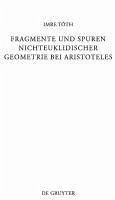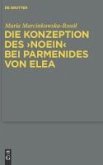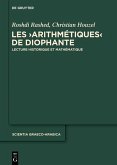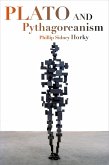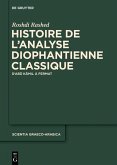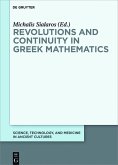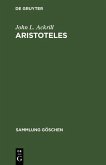In the Corpus Aristotelicum there are 18 passages where it can be shown that Aristotle quotes statements that are formally opposite to the fundamental Euclidean theorem of the sum of the angles in a triangle. These statements are the result of the attempt by the geometricians of the Academy to prove the fundamental approach of Euclidean geometry indirectly. However, the attempt did not result in contradiction and Aristotle felt that there was no way of deciding between the alternatives "Euclidean - non-Euclidean". In his Ethics this is the only example he uses to illustrate the freedom of choice of the active subject.
Dieser Download kann aus rechtlichen Gründen nur mit Rechnungsadresse in A, B, BG, CY, CZ, D, DK, EW, E, FIN, F, GR, HR, H, IRL, I, LT, L, LR, M, NL, PL, P, R, S, SLO, SK ausgeliefert werden.
"Wer lese nun das Buch? Seine Bedeutung für den Mathematik- oder Philosophiehistoriker steht außer Zweifel. Aber auch Altertumskundler der philologischen Richtungen sollten es in die Hand nehmen, etwa wenn sie sich für den Werdegang mathematischer Forschung im Umfeld von Akademie und Peripatos interessieren; Tóth ist dort am besten, wo er die einzelnen Stufen des Erkenntnisprozesses aus den Sedimentschichten der Äußerungen bei Aristoteles und Euklid rekonstruiert. Nicht zuletzt aber wird, wer sich in irgendeiner Weise vertieft mit einer der von Tóth behandelten Stellen befaßt, seine Erläuterungen dankbar heranziehen; was deren geometrische Hintergründe angeht, ist so manches knifflige Rätsel nun gelöst."
Wilfried H. Lingenberg in: BMCR 2012.08.03
Wilfried H. Lingenberg in: BMCR 2012.08.03

